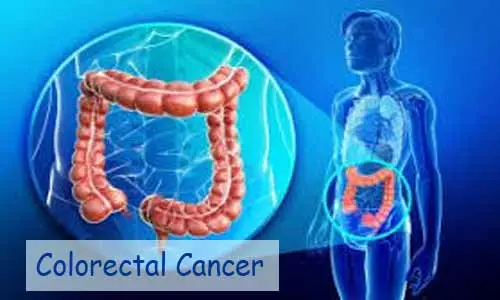- Home
- Medical news & Guidelines
- Anesthesiology
- Cardiology and CTVS
- Critical Care
- Dentistry
- Dermatology
- Diabetes and Endocrinology
- ENT
- Gastroenterology
- Medicine
- Nephrology
- Neurology
- Obstretics-Gynaecology
- Oncology
- Ophthalmology
- Orthopaedics
- Pediatrics-Neonatology
- Psychiatry
- Pulmonology
- Radiology
- Surgery
- Urology
- Laboratory Medicine
- Diet
- Nursing
- Paramedical
- Physiotherapy
- Health news
- Fact Check
- Bone Health Fact Check
- Brain Health Fact Check
- Cancer Related Fact Check
- Child Care Fact Check
- Dental and oral health fact check
- Diabetes and metabolic health fact check
- Diet and Nutrition Fact Check
- Eye and ENT Care Fact Check
- Fitness fact check
- Gut health fact check
- Heart health fact check
- Kidney health fact check
- Medical education fact check
- Men's health fact check
- Respiratory fact check
- Skin and hair care fact check
- Vaccine and Immunization fact check
- Women's health fact check
- AYUSH
- State News
- Andaman and Nicobar Islands
- Andhra Pradesh
- Arunachal Pradesh
- Assam
- Bihar
- Chandigarh
- Chattisgarh
- Dadra and Nagar Haveli
- Daman and Diu
- Delhi
- Goa
- Gujarat
- Haryana
- Himachal Pradesh
- Jammu & Kashmir
- Jharkhand
- Karnataka
- Kerala
- Ladakh
- Lakshadweep
- Madhya Pradesh
- Maharashtra
- Manipur
- Meghalaya
- Mizoram
- Nagaland
- Odisha
- Puducherry
- Punjab
- Rajasthan
- Sikkim
- Tamil Nadu
- Telangana
- Tripura
- Uttar Pradesh
- Uttrakhand
- West Bengal
- Medical Education
- Industry
Low-dose aspirin may prevent cancer in familial adenomatous polyposis patients: Study

Japan: Low-dose aspirin could be an alternate method for the prevention of colorectal cancer in familial adenomatous polyposis (FAP) patients, according to a recent study in the journal Lancet Gastroenterology & Hepatology.
The study found that the administration of low-dose aspirin safely suppressed the recurrence of colorectal polyps larger than 5·0 mm in FAP patients.
Colectomy is the only established treatment for the prevention of colorectal cancer in FAP patients. The procedure, however, greatly reduces the patient's quality of life. Thus, there is a need for an alternative method. In the trial, Prof Michihiro Mutoh, Kyoto Prefectural University of Medicine, Kyoto, Japan, and colleagues aimed to clarify the individual and joint effects of low-dose aspirin and mesalazine on the recurrence of colorectal polyps in Japanese patients with FAP.
For this purpose, the researchers performed a randomized, double-blind, placebo-controlled, multicentre trial with a two-by-two factorial design in 11 centers in Japan. It included patients aged 16–70 years with a history of more than 100 adenomatous polyps in the large intestine, without a history of colectomy. Before the study, patients underwent endoscopic removal of all colorectal polyps of at least 5·0 mm in diameter.
Patients were randomized to 4 groups -- aspirin (100 mg per day) plus mesalazine (2 g per day), aspirin (100 mg per day) plus mesalazine placebo, aspirin placebo plus mesalazine (2 g per day), or aspirin placebo plus mesalazine placebo. Treatment was continued until 1 week before the 8-month colonoscopy.
The primary endpoint was the incidence of colorectal polyps of at least 5·0 mm at 8 months and was assessed in the intention-to-treat population. Safety was assessed in the ITT population.
Between Sept 25, 2015, and March 13, 2017, 104 patients were randomly assigned to receive either aspirin or aspirin placebo (n=52) or mesalazine or mesalazine placebo (n=52). Two patients withdrew from the aspirin plus mesalazine placebo group.
Key findings of the study include:
- Two patients withdrew from the aspirin plus mesalazine placebo group.
- 26 (50%) of 52 patients who received no aspirin had colorectal polyps of at least 5·0 mm at 8 months, as did 15 (30%) of the 50 patients who received any aspirin, 21 (42%) of the 50 patients who received no mesalazine, and 20 (38%) of the 52 patients who received any mesalazine.
- The adjusted odds ratio for polyp recurrence was 0·37 in the patients who received any aspirin and 0·87 in any who received mesalazine.
- The most common adverse events were grade 1–2 upper gastrointestinal symptoms in three (12%) of 26 patients who received aspirin plus mesalazine, one (4%) of 24 patients who received aspirin plus mesalazine placebo, and one (4%) of 26 patients who received mesalazine plus aspirin placebo.
- There was one grade 4 event in the mesalazine plus aspirin placebo group, but not related to the treatment.
"Low-dose aspirin safely suppressed the recurrence of colorectal polyps larger than 5·0 mm in patients with FAP," wrote the authors. "These results suggest an effect of low-dose aspirin for FAP and could be an alternative method for preventing colorectal cancer in FAP."
Reference:
The study titled, "Chemoprevention with low-dose aspirin, mesalazine, or both in patients with familial adenomatous polyposis without previous colectomy (J-FAPP Study IV): a multicentre, double-blind, randomised, two-by-two factorial design trial," is published in the journal Lancet Gastroenterology & Hepatology.
DOI: https://www.thelancet.com/journals/langas/article/PIIS2468-1253(21)00018-2/fulltext
Dr Kamal Kant Kohli-MBBS, DTCD- a chest specialist with more than 30 years of practice and a flair for writing clinical articles, Dr Kamal Kant Kohli joined Medical Dialogues as a Chief Editor of Medical News. Besides writing articles, as an editor, he proofreads and verifies all the medical content published on Medical Dialogues including those coming from journals, studies,medical conferences,guidelines etc. Email: drkohli@medicaldialogues.in. Contact no. 011-43720751


